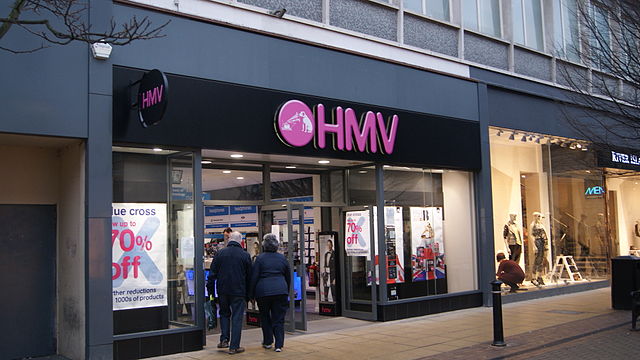Article by Laura Walshe of The Business Debt Advisor
2018 was a turbulent year for retail, as we saw the disappearance of Poundland, Toys R Us, and Maplin.
In the same period, numerous other household names were forced into restructuring deals, which led to the closure of hundreds of high-street stores.
In the days after Christmas, music retailer HMV collapsed into Administration for the second time in six years.
Will Wright, Joint Administrator and Partner at KPMG said “We will endeavour to continue to operate all stores as a going concern while we assess options for the business, including a possible sale. Customers with gift cards are advised that the cards will be honoured as usual, while the business continues to trade.”
The music chain were thrown another lifeline last week when it was announced that Canadian firm Sunrise Records will buy 100 stores out of administration, saving 1,487 jobs. However, 27 stores will still close, resulting in 455 redundancies.
While this is welcome news for HMV customers, there is often little prospect of consumers being able to recover deposits or other prepayments when a company goes bust.
How common are prepayments?
Consumers often purchase gift vouchers, especially at Christmas. Others pay into saving schemes or pay (fully or partially) for goods or services ahead of receiving them.
Where losses do occur they are most often for relatively modest amounts. But there are instances where consumers have lost hundreds, or even thousands of pounds, such as the 150,000 affected by the failure of Farepak in 2006.
What is the risk?
The risk facing consumers is that unspent gift vouchers could become worthless if the business which supplied the voucher becomes insolvent. A consumer could be left without the item, or a refund.
If a company enters Administration, the Administrator may decide to continue trading for a period of time and continue to accept vouchers at face value, although there is no obligation to do so.
In the case of a company entering into liquidation, there is no prospect of the vouchers being redeemed.
Currently (by law), customers who have purchased gift vouchers or made prepayments are classed as unsecured creditors. In this situation, it is not unusual for customers to receive a nominal dividend from the estate, or nothing at all.
What is being done to protect consumers?
The Department for Business, Innovation and Skills asked The Law Commission to review protection afforded to consumer prepayments, and whether this needs to be strengthened. It aims to address growing public concern about consumer protection in insolvency.
The Government published its response in December 2018 and acknowledged the recommendations made.
It also confirmed that it would introduce new legislation to offer consumers better protection.
What about those affected now?
For anyone affected by recent insolvencies it is useful to be aware of the existing protection offered by The UK Cards Association and ‘Chargeback’ which can enable consumers to claim a refund from their debit or credit card issuer.
Alternatively, where a consumer has paid for goods or services using a credit card there is protection offered under Section 75 of the Consumer Credit Act 1974.
More information can be found here:
If you have any queries please fill out our Contact Form and we will be in touch. Alternatively, please call us on 0800 781 0990.
The Business Debt Advisor is a trading division of The Debt Advisor Ltd which is authorised and regulated by The Financial Conduct Authority number 659920. Beverley Budsworth is the MD and is also an Insolvency Practitioner regulated by The Insolvency Practitioners Association.


